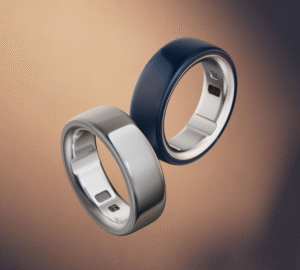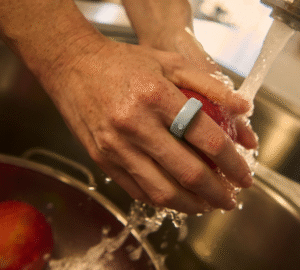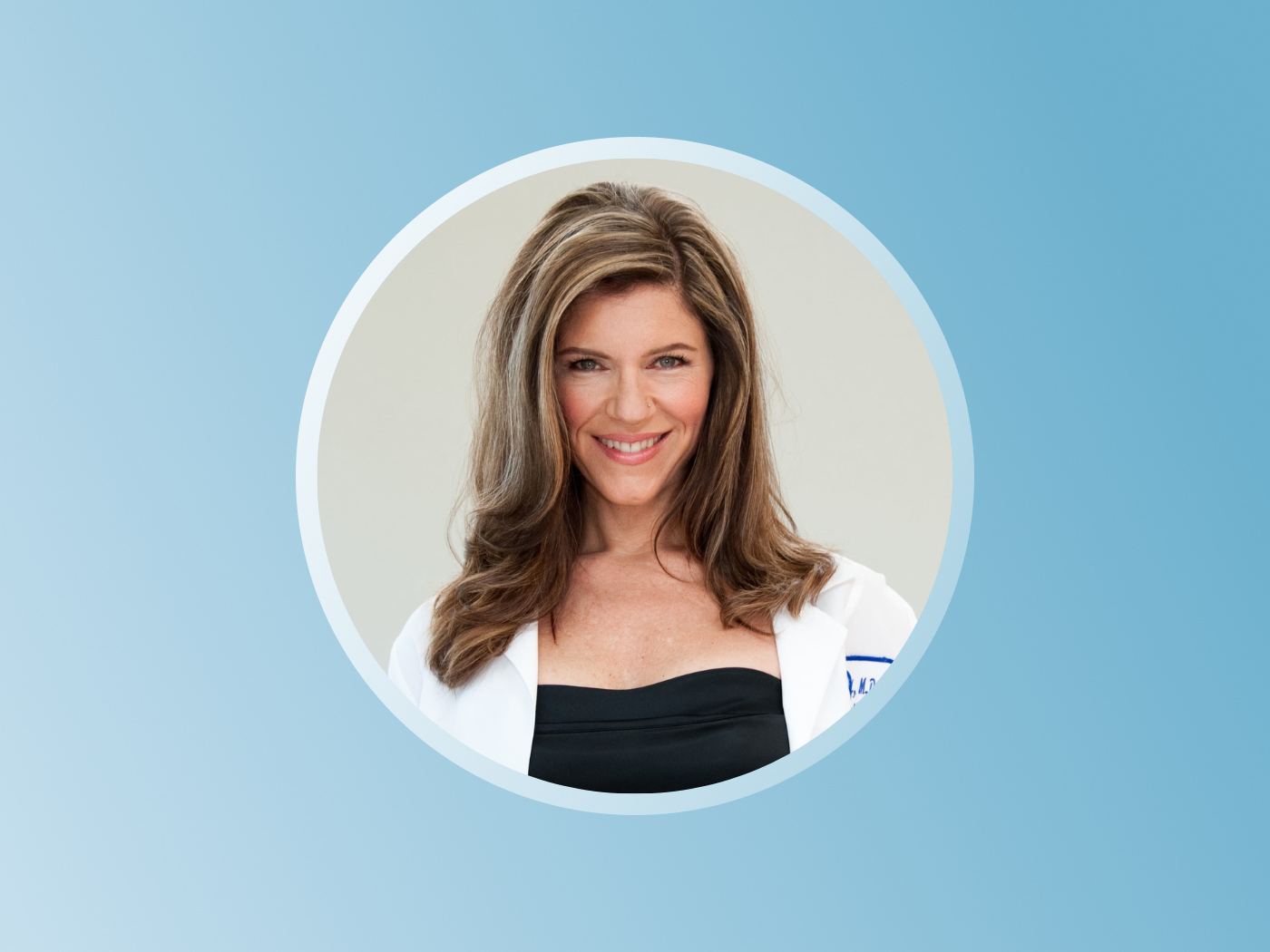We’re thrilled to have Dr. Sara Szal, MD, a board-certified physician with degrees from Harvard and MIT, join Oura’s medical advisory board.
Dr. Szal practices evidence-based integrative, precision, and functional medicine. She is a Clinical Assistant Professor in the Department of Integrative Medicine and Nutritional Sciences at Thomas Jefferson University, and Director of Precision Medicine at the Marcus Institute of Integrative Health. She has written four New York Times bestselling books including her latest book, Women, Food, and Hormones.
Read on for Dr. Szal’s surprising Oura insights, tips on how to use Oura to support your overall hormonal health, and information on the link between sleep and hormonal balance. Learn more on her website or on Instagram.
What brought you to Oura?
I have been using Oura for about seven years. I love the amount of actionable data and insights I get from it. Oura doesn’t just track REM and deep sleep; its algorithm creates a Readiness Score each day. I use that score to determine what type of exercise I do each day — whether I can go harder or need to do something less intense. I especially love the new Daytime Stress feature, which informs me about whether I’m physiologically stressed or restored or somewhere in between.
RELATED: Reframing Stress: The Difference Between “Bad” and “Good” Stress
What surprising insights have you learned about your own health since using Oura?
My heart rate variability (HRV) — the variation in time between each heartbeat that signals the health of the “rest and digest” half of the autonomic nervous system — is very sensitive. For example, if I have one glass of wine, I sleep worse that night and my HRV goes down. That’s an insight that tells me alcohol is just not worth it to me anymore.
READ MORE: How Does Alcohol Impact Oura Members?
Tell us about your background and the current focus of your work.
My medical career began in the traditional healthcare setting, at MIT and Harvard Medical School, where health is described as the absence of disease. From an early age, I was also exposed to another model of health from my great-grandmother.
She believed that you do not find health in the bottom of a pill bottle. You find it in the way you architect your health. You find it in the choices you make every day with your lifestyle. My great-grandmother would show up at the house with kale and other whole foods, instead of showing up with candy like my grandmother did. She did not drink. She practiced yoga starting in the 1950s. And before she died, she could still stick her foot behind her head and would do this regularly at dinner parties. That is a model of health that I want!
What does “precision medicine” mean?
Precision medicine is health care tailored to you, the individual. It is medical care designed to optimize efficiency using genetic or molecular profiling. Precision medicine extends to all aspects of medical care, particularly nutrition, lifestyle redesign, gut health, metabolism, the brain, and mental health. To sum up, precision or personalized medicine harnesses the power of customized recommendations in the way a patient eats, moves, sleeps, thinks, and connects.
In your experience, what’s the most misunderstood aspect of holistic health?
What I wish everybody knew is that only 10% of disease is genetic — 90% is due to epigenetics (how your genes react and talk with the environment they are in), which means you have more control over how you age than you may think.
It is never too late to improve your health. It doesn’t matter where you’re starting from; you can positively impact your healthspan with healthy lifestyle changes. Never let any doctor tell you that the symptoms you are experiencing are just “part of the aging process.”
Whether it’s brain fog, memory loss, stubborn weight gain, loss of sex drive, depression, or anxiety — these symptoms have their root in how you take care of your body. Changing how you eat, think, move, sleep, and supplement can reverse many of the “normal” signs of aging that you may experience.
RELATED: How Your Sleep Needs Change Throughout Your Life
What role does sleep play in balancing your hormones?
Good sleep is crucial to health. When ignored, poor sleep will make you fall down a hormonal flight of stairs. That is true whether you are 30, 50, or 70. Sleep is one of the smartest ways to regulate cortisol, thyroid, estrogen, and growth hormones, as well as hunger hormones. Nearly every hormone is released in response to your circadian rhythm (your sleep-wake cycle.)
Here are some of the main hormones that are affected by sleep:
- Cortisol: Sleep tells your body when to regulate cortisol, the stress hormone. When you relax and sleep well and wake up feeling restored, your cortisol reaches a peak within 30 minutes of waking up. That peak sets off all your other hormones, including your thyroid and estrogen. When you don’t sleep well, cortisol is high when you wake up in the morning. That can disrupt the tango between estrogen and progesterone. It can cause your thyroid to slow down, which can affect your metabolism by slowing it down. Aim to sleep 7 to 8.5 hours every night to keep cortisol in check.
- Hunger hormones: Poor quality sleep disrupts the levels of leptin, ghrelin, and insulin. The interplay and signaling between these hormones are responsible for how the food you eat gets used for energy and storage in your body. Poor sleep messes with this delicate interaction and can lead to insulin resistance and weight gain, in particular around your middle.
- Melatonin and growth hormone: Melatonin and growth hormone help you fall asleep and stay asleep and are mainly secreted at night. Melatonin controls more than 500 genes in the body, including the genes involved in the immune system, so managing your melatonin with good sleep is key.
LEARN MORE: How Sleep Helps With Weight Management
What’s the best way Oura members can utilize Oura data to improve their overall health?
Members can use their Oura data to improve the quality of their sleep. This, in turn, could help regulate hunger hormones and help someone to lose weight. Or let’s say that high cortisol levels are the reason for weight gain or other hormone imbalances. By finding ways to manage their stress, they will see improvement in their Readiness Score, suggesting a more balanced level of cortisol level. In my book, The Hormone Cure, I describe cortisol as a bully: if it is high, it impacts all the hormones in our bodies.
| Member Tip: In your Oura App, tag your stress management tools using the Tags feature. After a few weeks or months of practicing your new technique, check your Trends view to see if you can notice changes in your Sleep Score or biometrics like HRV. |
What advancements in technology do you believe will have the most significant impact on patient care and health outcomes in the coming years?
The concept of “what you measure improves” has never been more true. We are in the era of personal dashboards, longitudinal data streams, and precision medicine analytics in order to improve and personalize health. The benefit of biohacking is to leverage every means possible — genetic, biochemical, psychological, emotional, spiritual — toward a specific goal, usually to feel your best and most productive.
Rapid-fire Round
Must-do morning ritual?
Meditation
Bedtime routine for good sleep?
I turn off screens an hour before I go to bed. I like to create a dark, cool, sleep-conducive environment in my bedroom. I recommend keeping your bedroom 64 degrees or cooler for women.
One bad habit Oura’s helped you break?
Having a glass of red wine in the evening that I thought was helping me relax when in fact it was doing the exact opposite.
Mid-afternoon energy booster?
Weight lifting if my readiness is high, or yoga if it’s low.
Surprising side interest or hobby?
Psychedelic-assisted medicine — I’ve recently become certified and find it’s a powerful way to heal chronic toxic stress.
RELATED: 5 Ways to Upgrade Your Sleep Hygiene











